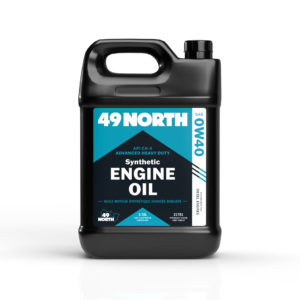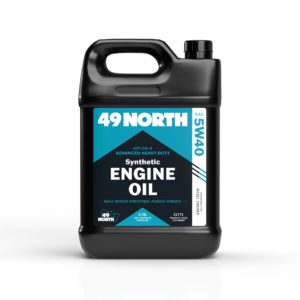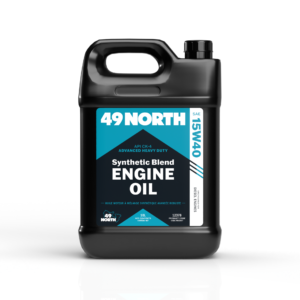
As technology evolves, so does the world of engine oils. With the rise in popularity of synthetic oils, many vehicle owners wonder whether it's a good idea to use synthetic oil in their older vehicles. In this blog, we'll delve into the question: "Can I use synthetic oil in an older vehicle?" We'll explore the benefits, considerations, and expert insights to help you make an informed decision about the right engine oil for your aging vehicle.
The Basics of Synthetic Oil
Before we tackle the question at hand, let's briefly cover what synthetic oil is. Synthetic oil undergoes a more advanced refining process than conventional oil which removes more of the impurities from the crude oil. Read our blog on synthetic oil to learn more details.
Benefits of Using Synthetic Oil in an Older Vehicle
1. Enhanced Lubrication: Synthetic oils are designed to offer improved lubrication at both high and low temperatures. This can be particularly beneficial for older engines that might experience increased friction due to wear and tear.
2. Reduced Wear and Tear: The advanced formulation of synthetic oils can help minimize engine wear, which is especially valuable for older vehicles with higher mileage.
3. Improved Cold-Start Performance: Synthetic oils flow more easily at low temperatures, ensuring smoother startups in colder weather, which can be crucial for older engines.
4. Resistance to Breakdown: Synthetic oils have a higher resistance to thermal breakdown and oxidation. This maintains their performance properties for longer periods compared to conventional oils.
5. Cleaner Engine: Synthetic oils tend to have fewer impurities and contaminants. Which means a cleaner engine and potentially prolonging its lifespan.
Considerations for Using Synthetic Oil in an Older Vehicle
1. Leaks and Consumption: Some older engines may have worn seals and gaskets that could result in increased oil consumption or leaks when switching to synthetic oil. It's recommended to monitor your oil levels closely after the switch.
2. Compatibility: Check your vehicle's owner's manual for guidance on whether synthetic oil is recommended or approved for your specific model and year.
3. Cost: Synthetic oils are generally more expensive than conventional oils. While the long term benefits can out weight the initial costs, you will need to assess your situation before making any switches.
Expert Insights
Experts generally agree that using synthetic oil in older vehicles can be beneficial, provided certain factors are considered. According to mechanics and industry professionals.
- Check the Manual: Always consult your car's owner's manual for information on recommended oil types. If the manual allows for synthetic oil, it's generally safe to make the switch.
- Gradual Transition: If you're switching from conventional to synthetic oil in an older engine, consider a gradual transition by using a synthetic blend first.
- Monitoring: Keep a close eye on oil levels and any changes in consumption or leaks after switching to synthetic oil. Address any issues properly.
Conclusion
Using synthetic oil in an older vehicle can offer numerous advantages. These include: enhanced lubrication, reduced wear, and improved cold-start performance. However, it's essential to consider factors like leaks, consumption, and compatibility before making the switch. It's worth exploring synthetic oil to extend the life and performance of your older vehicle.
As always, when in doubt, please call 1.800.463.0354 and speak to our Technical Specialist - Corey Foy.
 |  |  |
| 0W40 Advanced Synthetic Heavy Duty | 5W40 Advanced Synthetic Heavy Duty | 15W40 Advanced Synthetic Blend Heavy Duty |